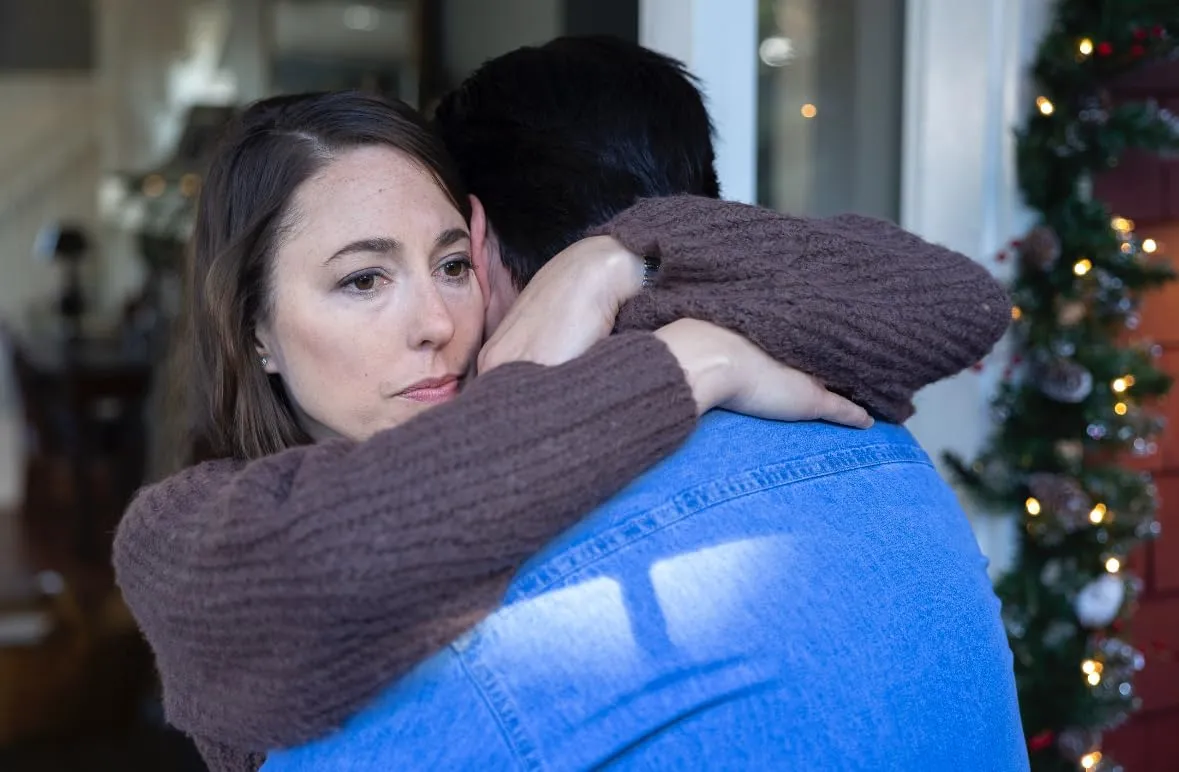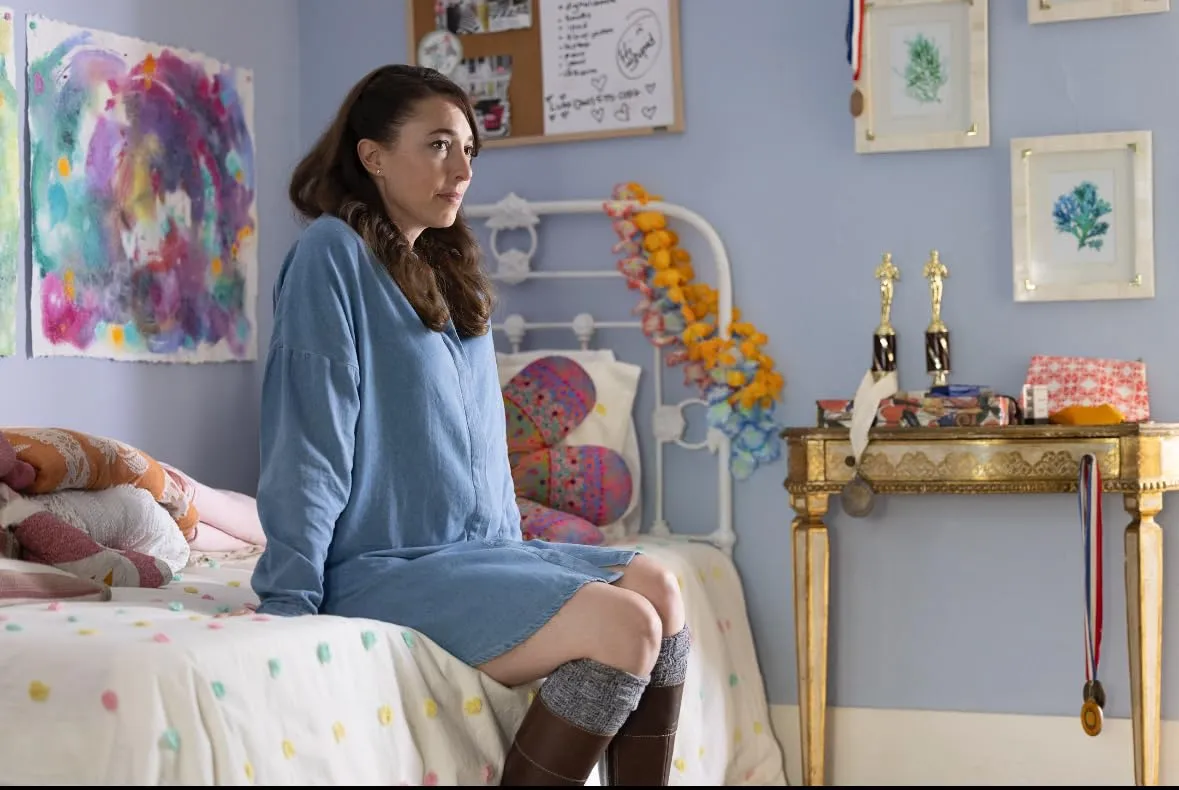A will is often perceived as the final, immutable word of a life lived, a dry accounting of assets. In reality, it is frequently the first shot in a new war, a piece of post-mortem puppeteering where the deceased continues to pull the strings. Inheritance anchors itself in this particular form of testamentary tyranny.
It proposes that the most significant things we inherit are not cash or property, but unresolved conflicts and meticulously engineered emotional crises. The film introduces us to Lucy, a woman on the precipice of creating life, whose own world is suddenly fractured by death. Her father’s passing is not an ending but a catalyst.
The inciting event is a legal document that functions as a final, cruel piece of parenting from beyond the grave. The terms are a masterclass in psychological warfare: Lucy, the stable daughter, receives the devalued family home, a symbol of stagnant responsibility. Her estranged, substance-abusing sister Paige is bequeathed the liquid assets, a fortune that represents freedom.
The catch, a bit of brilliant narrative architecture, is that Lucy must act as warden, doling out the cash only if Paige submits to rehab. The stage is immediately set, not for a simple squabble over money, but for a profound moral and emotional conflict born of grief, long-simmering resentment, and a father’s misguided attempt to control his daughters even after his own end.
A Schism in Miniature
The film’s central conflict is a schism in miniature, a two-person cold war that reflects a broader societal split between the forces of order and chaos, the settler and the nomad. Lucy, played by Rachel Noll James with an authentic, bone-deep weariness, is the archetypal responsible child.
She is the keeper of stability, the one who stayed. Now, she finds herself triply burdened by her pregnancy, her sorrow, and the impossible, absurd task of parenting her own older sibling (a truly Sisyphean assignment). Her dutiful nature has been weaponized against her by the very person who cultivated it.
Into her structured world crashes Paige, the prodigal sister, portrayed by Austin Highsmith Garces as a whirlwind of desperate charm, corrosive wit, and raw manipulation. She doesn’t just want the money; she needs it, with a palpable urgency that suggests dangers lurking just off-screen.
Initially, the archetypes are clear: the saint and the sinner. Yet the performances refuse to let the characters rest in these simple boxes. This is the film’s greatest strength. James allows us to see the dangerous cracks forming in Lucy’s stoicism, the profound sense of having been existentially cheated. Her resentment is quiet but tectonic.
Garces, in turn, gives Paige a layered desperation that pushes past simple narcissism; her manipulative tactics are clearly survival skills honed by addiction and trauma. She is a woman flailing in a wreckage of her own making, but the film insists we acknowledge the wreckage.
Caught between these two gravitational forces is Lucy’s husband, Luke (Wes Brown), a human fulcrum whose past connection to Paige acts as a narrative accelerant. He is not a passive observer but a complicating factor, a ghost from their shared history whose presence ensures the simmering conflict will inevitably boil over.
The Architecture of Authenticity
There is an impressive structural integrity to Inheritance, a testament to a screenplay that understands people are rarely as simple as their worst mistakes or as noble as their best intentions. The script, written by the film’s two leads, feels like an act of creative necessity—a clear case of actors writing the kind of complex, psychologically messy, and deeply flawed female roles for themselves that are too often absent from the screen.
It avoids the easy catharsis of so many family dramas. Instead, it leans into the discomfort. The narrative takes the familiar chassis of the estranged-sibling story and gives it a new engine, one that runs on realism instead of saccharine sentiment. Revelations about past betrayals are deployed with the precision of a metronome, maintaining a steady, engaging pace that never sacrifices character development for the sake of plot.
This disciplined approach is mirrored in Emily Moss Wilson’s direction, which is a study in controlled force. One gets the sense that she could have easily steered the film into the loud, swampy territory of melodrama, but she consistently chooses a more difficult, quieter path.
Her background in television seems to have honed a sharp instinct for narrative efficiency and an under-appreciated understanding of classical dramatic structure. She builds tension within a scene through loaded glances and conversational subtext rather than shouting matches.
Her work is that of a confident dramatist, one who trusts her actors and her script to carry the emotional weight without the artificial support of manufactured hysterics. The result is a film that feels meticulously crafted, yet breathes with the unpredictable messiness of real life.
The Geography of Grief
So many films, particularly independent ones, forget that locations are more than backdrops; they are active participants in the story. Here, the cinematography of Dan Clarke turns the Washington State setting into a core character.
The lush, damp greenery and perpetually overcast skies provide a specific geography of grief. This is not just scenery; it is environmental storytelling, where the lived-in production design of the family home feels heavy with unspoken history and the oppressive humidity of unresolved tension.
The landscape is a reflection of the characters’ internal states: beautiful, brooding, and impossible to escape. The visuals, supported by Michael Reola’s effective and unobtrusive score, create an atmosphere that is rich, tangible, and deeply melancholic.
Ultimately, the film stands as a potent example of what mature, human-scaled drama can accomplish in an era of spectacle. It forgoes easy answers and instead explores the difficult, iterative process of piecing a family back together from the fragments left behind.
This is a story about the true nature of inheritance—not the houses or the bank accounts, but the emotional baggage, the ancient wounds, and the faint, fragile possibility of redemption.
In its quiet confidence and its commitment to emotional honesty, the movie makes a strong case for itself. It is a necessary piece of quiet cinema, a reminder that the most profound stories are often the ones that explore the turbulent landscapes within our own homes.
Inheritance is a 102-minute drama that premiered at Dances With Films on June 21, 2024. After its festival premiere, it toured the indie circuit and was screened at venues like the Modern Art Museum of Fort Worth in January 2025.
Full Credits
Director: Emily Moss Wilson
Writers: Rachel Noll James, Austin Highsmith Garces
Producers and Executive Producers: Sienna Beckman, Rachel Noll James, Emily Moss Wilson, Austin Highsmith Garces
Cast: Rachel Noll James, Austin Highsmith Garces, Wes Brown, Chris Mulkey, Michelle Hurd, Brian McNamara, Dana Sparks, Cynthia Geary
The Review
Inheritance
A mature, intelligent, and precisely crafted drama, Inheritance uses a contentious last will to dissect the intricate and messy realities of familial grief. Anchored by two outstanding lead performances and confident direction that skillfully avoids melodrama, the film is a powerful example of human-scaled storytelling. It is a quiet, thoughtful, and emotionally resonant examination of the wounds we inherit and the difficult path toward healing them.
PROS
- An intelligent and realistic script featuring complex, flawed female characters.
- Strong, layered performances from the two lead actresses that add significant depth.
- Controlled, confident direction that favors emotional honesty over melodrama.
- Excellent use of atmosphere and setting to enhance the story's emotional weight.
CONS
- Its deliberate, quiet pacing may not engage all viewers.
- The story is built on the familiar premise of estranged siblings.
- The conflict is primarily psychological, which some may find lacking in overt action.

















































